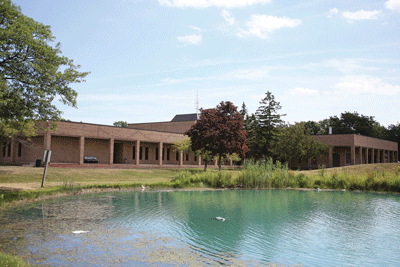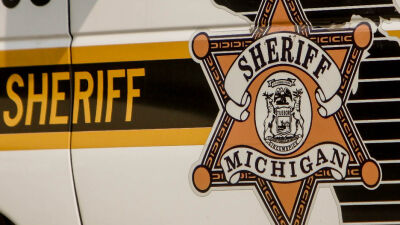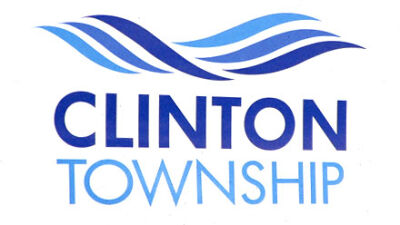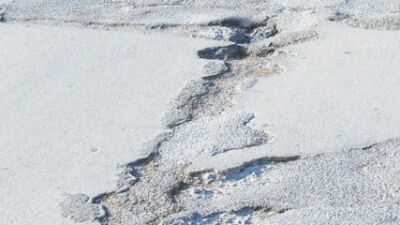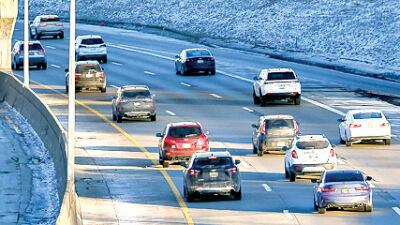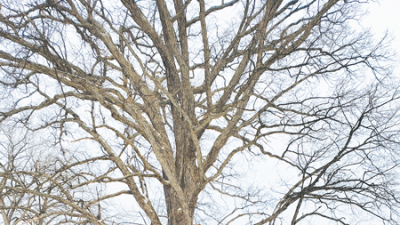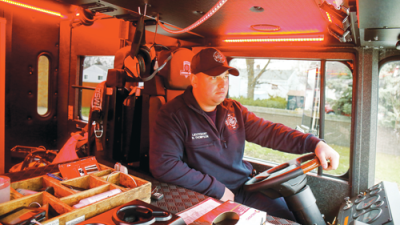CLINTON TOWNSHIP — The Clinton Township Board of Trustees had a lengthy meeting on Oct. 24, hearing three presentations and completing other items of business.
One key item tackled early in the meeting was an application for a Transportation Alternatives Program grant from the Southeast Michigan Council of Governments (SEMCOG) to help pay for improvements to the David Bonior Trail, formerly known as the Freedom Trail.
“Bonior, the now-retired state representative from our area that played a key role in the funding and construction of this pathway, is donating funds for a statue to commemorate the benefits the trail has brought to the community,” Township Clerk Kim Meltzer said. “This statue will be installed at the Gratiot Avenue and Metropolitan Parkway intersection. Efforts are also being taken to secure well-leveraged grant funding for the refurbishment and safety upgrades along this trail that runs along Metropolitan Parkway from the east and west extents of Clinton Township.”
The grant, which requires a 30% local funding match and would provide $1.7 million, is one of several funding sources pursued by the township. Formal funding assistance requests have been submitted to the offices of U.S. Sen. Gary Peters and U.S. Rep. Andy Levin. Levin has reportedly submitted a funding request to the House Committee on Appropriations, while a determination is not expected until December at the earliest.
Township Treasurer Paul Gieleghem and Township Supervisor Robert Cannon took time after the resolution was read to praise Bonior’s work as a representative for Clinton Township and Southeast Michigan.
The resolution to pursue the grant was unanimously approved.
Presentations
The first of three presentations updated the board of trustees on the township’s “Plan for Economic Development.” The plan is one of five strategic plan action groups approved in 2020. The economic development group is led by Bruce Thompson, the township’s planning and development director.
The development plan calls for the advancement of four goals: promoting the township, developing business incentives, facilitating redevelopment and mixed-use development, and focusing on landscaping and beautification along major corridors.
Liking what was presented, the trustees approved the presented plan.
Clinton Township Police Chief Dina Caringi presented information about the Police Department’s special needs registry. The form, which can be filled out by going to clintontownship.com/281/Police, allows residents to register themselves or family members with mental conditions.
“It really provides so much information to us with just such a short form with regards to any critical information (for officers) responding to an emergency situation with someone who has a special need or medical condition,” Caringi said. “The more information that we can have ahead of time to respond safely and accurately really is in everybody’s best interest.”
The last presentation was the treasurer’s quarterly report, covering the state of township finances from July 1 to Sept. 30. The township was unable to meet its investment returns benchmarks due to the rapid rise of the Federal Reserve’s short-term browning rate, which was increased from nearly 0% in April to about 3.25% in September.
“The reason why we weren’t able to meet our benchmark is because of this precipitous increase,” Gieleghem said. “We had to buy investments at a much, much lower rate earlier in the year and even some that are still on the books from last year from when the Federal Reserve rate was zero.”
Gieleghem says the township uses a “barbell strategy” by receiving returns through long-term investments and “rolling through” the short-term investments. The township had a 2.52% cumulative average return throughout the quarter and expects more dramatic earnings in the current quarter.
Ordinance introduction and adoptions
Trustees also approved three ordinance readings, approving two and moving one to a second reading.
One of the approved first readings was an amendment to ordinance 209.05 Dishonored Checks And/Or Failed Payment. If approved on second reading, the amendments would allow the treasurer’s office to waive online checking fees in case an otherwise sound check fails to go through.
The first adopted ordinance was an amendment to Chapter 1040 - Water and Sewers, which updates definitions and terminology within the ordinance to fit the current state of the department. Similarly, the second adopted ordinance was an amendment to update the definitions and terminology in Chapter 1248 - Standards for Engineering Design, for Preparation of Engineering Plans and Specifications, and for Construction of Site Improvements.
 Publication select ▼
Publication select ▼